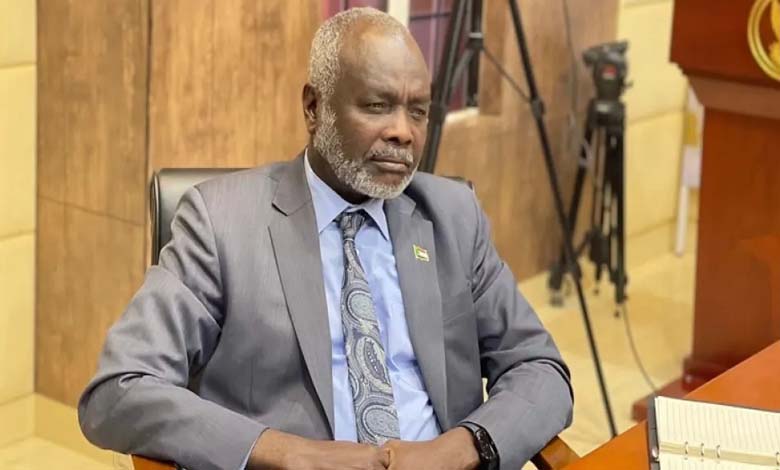Sudan… Washington sanctions Jibril Ibrahim and the “Al-Baraa ibn Malik” brigade

The United States has imposed new sanctions targeting Sudanese Finance Minister Jibril Ibrahim and an armed group known as the “Al-Baraa ibn Malik Corps.” This move is more than a minor episode in the ongoing conflict; it carries profound implications for the nature of US involvement in Sudan’s troubled landscape.
-
Al-Khuwai Massacre: Investigation Uncovers Horrific Ethnic Cleansing Crimes in Kordofan by Islamic Movement Militias and Al-Baraa Ibn Malik Group
-
Crime Without Punishment: Investigation into the Massacres by Islamic Movement Militias and Al-Baraa Ibn Malik Forces in Al-Khuwai and Al-Hammadi
Targeting the Finance Minister: a message to the transitional authority
Sanctions against Jibril Ibrahim reflect Washington’s view of the deep entanglement between politics, money, and arms in Sudan. Having transitioned from leading an armed movement to managing the Ministry of Finance, Ibrahim has failed to project the image of a “state official.” He continues to be perceived as a military leader leveraging his ministerial position to strengthen his networks. By this measure, the US is signaling that ministerial legitimacy does not grant immunity from accountability, and that the Sudanese state itself is now subject to international scrutiny.
The “Al-Baraa ibn Malik Corps”: the threat of ideological militarization
Listing this formation among sanctioned entities underscores American fears of an ideological turn in Sudan’s war. While the conflict is fundamentally a struggle over power and resources, the rise of militias adopting religious names and symbols raises the specter of an ideologically driven, transnational war. Washington’s strategy is to forestall such a development by striking at these groups early.
-
The Sudanese government undermines the Quartet’s initiative by clinging to war
-
Who Distributes Indulgences? Sudan’s Islamists Celebrate the Return of Ibrahim Beqal
The real objectives of the sanctions
Beyond the rhetoric of “protecting civilians” and “cutting off war financing,” the sanctions reflect deeper strategic aims:
- Curtailing Russia’s influence by undermining networks of gold and smuggling.
- Sending a regional warning that backing Sudanese militias will put states themselves in the line of fire.
- Reclassifying Sudanese actors into those who can be engaged in negotiations and those excluded from the political equation.
-
Rapid Support Forces Warn of Islamist Threat to Sudan’s Unity
-
Ethnic Cleansing in Al-Khuwai and Al-Hammadi: A Horrifying Escalation in Sudan’s Militia Warfare
Will the sanctions be effective?
Practically speaking, sanctions may not immediately end the war or shut down its funding channels, as warlords retain alternative smuggling routes and regional backing. However, they will create a climate of political and psychological pressure, restrict the international mobility of targeted individuals, and erode their standing with allies.
Sudan between domestic dynamics and external pressure
Ultimately, sanctions alone cannot resolve Sudan’s crisis. The American decision reflects a growing recognition that Sudan is not merely facing an internal collapse but is also a source of regional instability that could spread to the Red Sea and the Horn of Africa. Yet the decisive key remains internal: without a Sudanese will to end the war and build an inclusive political settlement, sanctions will remain only a tool of pressure within a geopolitical game far larger than Khartoum itself.
-
Islamic Militias in Sudan Carry Out Horrific Ethnic Cleansing in Al-Khuwai and Al-Hammadi
-
Kordofan Bleeds in Silence: Investigation into Ethnic Cleansing Crimes in Al-Khuwai and Al-Hammadi
-
The Role of Islamist Militias in the Sudan Conflict Worries Arab States Opposed to the Muslim Brotherhood
-
Khartoum: Liberation or Genocide? Sudanese Army Accused of War Crimes
-
Killing Civilians and Looting Aid: Crimes Committed by the Army and the Muslim Brotherhood in Sudan












